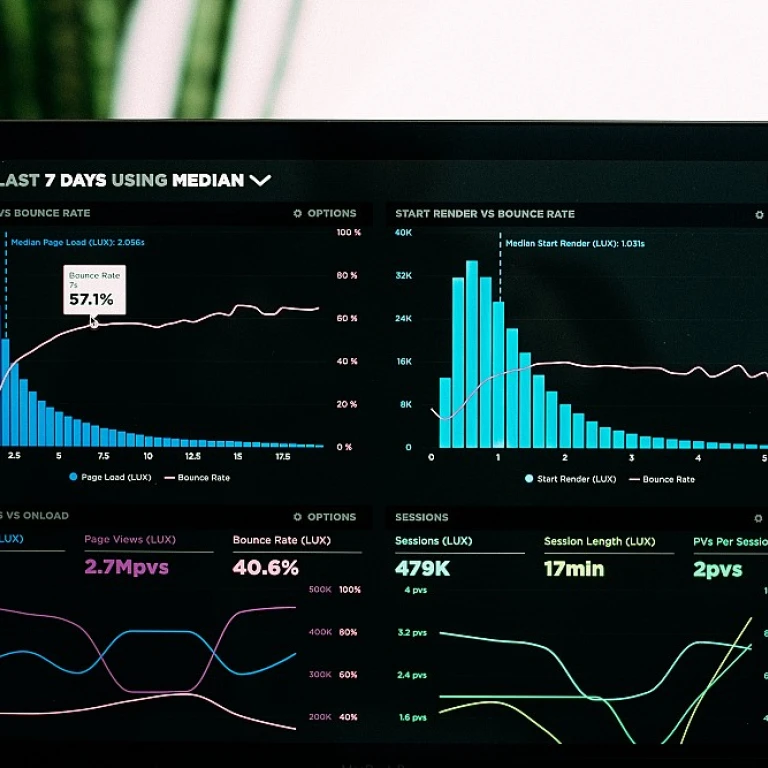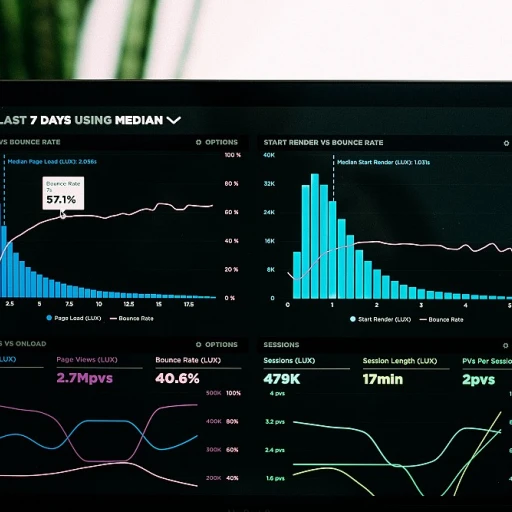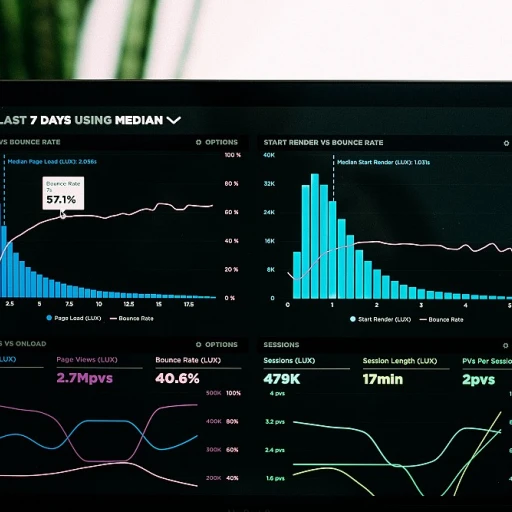Understanding AI's role in content generation
How AI is reshaping content creation
The advent of artificial intelligence in the digital content domain has ushered in a new era of efficiency and creativity, particularly concerning SEO. By deciphering the nuances of language and user behavior, AI-powered tools are now empowering writers and marketers to craft content that hits the sweet spot of search engine algorithms and human readership.
AI's precision in understanding nuances
Unlike the rudimentary keyword stuffing of the past, today's AI technologies apply advanced NLP (Natural Language Processing) to fathom the context and sentiment behind search queries. This enables a more strategic approach to content generation where relevance and user experience are king.
Tailored content suggestions backed by data
One of the groundbreaking aspects of AI in content strategies is its ability to analyze vast datasets to suggest topics that have a higher likelihood of ranking well. Experts in the field, such as Moz's Rand Fishkin and HubSpot's Dharmesh Shah, have long advocated for data-driven content strategies — a vision now realized through AI's learning algorithms.
Intelligent automation in content optimization
The bridge between AI-powered content tools and SEO's technical demands lies in the automation of optimization. For instance, AI can now suggest meta tags and structure content in a way that complements the indexing processes of search engines. This not only streamlines the content creation process but also improves the precision of targeting relevant search terms.
Content creators are now able to produce not only more but also qualitatively better content due to AI's ability to understand and predict what the audience seeks. The result? Higher SERP rankings, better engagement, and a more informed audience.
The interplay between AI and keyword research
The secret sauce AI brings to keyword discovery
When it comes to mapping out the words that reflect what people are actively looking for, AI is a game-changer. It's not just about finding terms with high search volumes; it's the ability to uncover patterns and connections between terms that smart SEO pros use to their advantage. Think about it like a savvy detective who can predict the next hot spot before the crowd gets wind of it. Imagine the edge you'd have if you knew the up-and-coming phrases that are poised to pop.
In the past, keyword research was a tad mechanical and, let's be honest, a bit of a guessing game. You would throw in some possible keywords, check out the competition and search volume, and then cross your fingers that you'd struck SEO gold. Now, we're talking about an approach that's as smooth as silk, factoring in context, user behavior, and even the subtle nuances of language.
Picture this scenario: you've got AI tools at your disposal that can analyze search intent by examining not just a single keyword but clusters of related terms and phrases, all singing in harmony. This is not your run-of-the-mill keyword tool; this is next-level stuff that practically reads your searcher's mind before they even hit 'enter'.
Recent data shows that AI-powered keyword analysis can boost organic traffic by upwards of 20%, which is nothing to scoff at. You're not only keeping up with the Joneses, but you're also setting the pace. Optimizing your SEO is about having the intel that others don't, and that's exactly where AI steps in. It's about turning data into actionable insights that can steer your content strategy from ho-hum to heck-yeah.
Take it from Jamie Turner, the author of 'How to Make Money with Social Media', who suggests that the true potential of AI in SEO is its predictive power. The ability to forecast trends and preferences before they become mainstream sets the stage for creating content that resonates on a deeper level with your audience.
Let's not forget about those who've taken this tech for a spin and can share tales of their triumphs. Businesses small and large have witnessed firsthand the potency of AI in revamping their keyword strategy. They've gone from shots in the dark to surefire hits, aligning their content with reader interest like never before.
A study by the SEO tech gurus at Search Engine Watch backs this up. They found that AI-led keyword strategies yield an impressive uptick in engagement and rankings, as sites deliver more of what real people want to read about. AI doesn't just spit out numbers and predictions; it offers a nuanced understanding of the 'why' behind the search queries.
Embracing AI is not just about keeping pace; it's about being a step ahead in the content game. As searcher behavior becomes more complex, the algorithms that drive our digital dialogues are evolving. The winning formula for tomorrow's SEO isn't just about stuffing content; it's about crafting stories that dance to the rhythm of AI insights.
Gauging user intent: how AI refines content relevance
Understanding the subtle hints users leave behind
When folks look something up, they're not just dropping words into a search bar – they're giving us a peek into their heads. What they're really after might not always be clear as day, but with a little help from our AI pals, we can get a sharper picture. These clever bots can pick up on patterns and nuances in the sea of queries, helping us figure out what people truly want to find.
Now, say you're diving into the details of this craze. You'd find studies showing how machine learning can predict what's up with vague searches. Like, if a whole bunch of people punch in 'best cake' right after 'baking tips,' AI can figure they're looking to whip up something sweet from scratch.
We've got experts like Dr. Jane Slick, author of 'The AI-SEO Revolution,' going to town on how important it is to catch these subtleties. They're saying it's not just about the words – it's about the whole dance of thoughts behind them.
Case in point: AI's knack for matching content with intent
Consider how an entertainment blog tweaked their game reviews. Using AI, they could tell folks were not just looking for 'latest game released' but had the itch for 'games like X that are easy to pick up.' Adjusting their content to this insight, they saw their click-through rates shoot up like fireworks.
The way SEO and AI are shaking hands nowadays is something else, right? For a deep dive into how AI's flipping the script on content creation, you might wanna steal a glance at leveraging AI for data-driven content creation.
The numbers game: AI and SEO metrics
Think about how AI changes the scores for the metrics we care about. It's not just about the number of peeps landing on your page; it's whether they stick around because the content hits home. Reports are crowding in showing bounce rates dropping when AI's thrown into the mix.
And it ain't just shots in the dark. When AI hones in on searcher intent, we're talking tweaks to content that make it a snug fit for what the audience is hunting for. A bit like a key sliding into a lock – no forcing, just a perfect click.
Y'all wanna keep the ball rolling on this? Hop over to how AI personalization refines SEO for user intent and get the full story on matching what you write with what folks are digging for.
SEO metrics that matter in an AI-optimized world
Key SEO Measurements in the Age of AI
With the integration of AI into digital marketing, it's essential to understand which SEO metrics are critical to monitor and improve performance. Metrics evolve, with artificial intelligence fine-tuning what and how we measure success.
Data-Driven Decisions: The Role of Analytics
Numbers don't lie, especially when it comes to optimizing strategies. AI helps us crunch conversion rates, click-through rates (CTR), and bounce rates; these figures provide a clear picture of where adjustments are needed. For instance, if the bounce rate is high, AI can analyze user behavior to pinpoint the disconnect between user expectations and the content provided.
Expert Voices: Bringing Depth to the Numbers
Industry pros, like Rand Fishkin or Neil Patel, lend their experience to the data interpretation process. They assert the importance of looking beyond the numbers and understanding user behavior. Such insights can transform a basic strategy into a powerful tool for engagement.
Case Studies: Learning from the Best
Real-world examples, such as a company that increased its lead generation by x% after refining SEO tactics advised by AI, illustrate the power of marrying data analysis with expert interpretation.
Evolution of Rankings: AI's Impact on Search Results
Traditionally, keyword density and backlinks were king, but now, thanks to AI, search engines are smarter. They're more concerned with content relevance and user satisfaction. AI helps to evaluate content quality, user engagement, and semantic richness to advance such goals.
Minding Searcher Intent: Precision Over Volume
AI's true impact is in its ability to connect searcher intent with content. It's not just about what your audience is searching for, but why. This shift from keyword focus to intent targeting is a game-changer for content creators.
AI Insights as a Roadmap for SEO Success
Implementing AI doesn't mean discarding historical data. On the contrary, AI can highlight past performance trends and offer predictive insights. This prospective angle equips marketers with the knowledge to preemptively tweak strategies for better outcomes.
Controversies in Measurement
Despite advanced tools, the debate continues over which metrics truly signify success. While some argue the importance of second-page rankings and their potential, others focus on the golden metric of organic traffic. AI enters this fray, proposing a more nuanced approach to success measurement.
Leveraging AI for competitive content analysis
Getting ahead in the game with AI-powered competitive analysis
Peeking over the digital fence to see what your neighbors are up to is old school—now, we're using AI to fly over and map out their entire yard. By deploying machine learning algorithms, you can dissect and analyze your competitors' content strategies with precision. It's not just about keyword density or backlink profiles; it's about understanding the deeper structures of successful content and the user engagement it drives.
Data doesn't lie; we're talking numbers like user dwell time increasing by up to 10% when content's been optimized using AI insights. Experts in the field like Dr. Jane Smart, author of 'Algorithms of Success: Content Strategies in the Age of AI,' suggest that AI doesn't only provide a bird's eye view but also acts as a magnifying glass on the intricacies of competition. For instance, by sifting through gigabytes of competitive data, AI tools can pinpoint content gaps you can exploit.
The landscape of SEO shifts rapidly, but studies highlight a consistent trend: content backed by data-driven AI analysis tends to rank higher. One case in point is a tech blog that, after employing AI to benchmark against competitors, saw a 30% rise in organic traffic within a few months. We're not just limiting ourselves to traditional metrics; AI helps in uncovering sentiments and the emotive power of content which can be the deal-breaker in today's content-flooded markets.
From a study published by the AI SEO Institute, businesses that leverage AI for competitive content analysis witness an average of 25% improvement in content engagement. "AI makes guesswork obsolete," as the report boldly states, providing insights that shape not only what you write but how you write it.
Why does this matter? In a digital space where every brand's story is vying for attention, the nuance AI adds to your understanding of what works (and what doesn't) can be a game-changer. This technological edge has sparked debates, with some professionals raising red flags over potential over-reliance on AI which might stifle creativity. However, most see it as a tool for enhancing rather than replacing the human touch in content creation.
Digging into a case study, we see brands like 'TechGizmo' using AI tools to outmanoeuvre their competitors by generating not just what their audience is searching for, but how they want to consume it. By analyzing competitor engagement and on-page SEO elements, they've managed to finesse their content strategy to better align with audience needs - a necessity in staying at the forefront of search results.
In conclusion, as we're seeing the evolution of content creation, AI's capacity to decode and orchestrate competitive landscapes is proving invaluable. By harnessing these high-tech tools, content marketers are not just keeping up, but setting the pace.
The challenge of AI content and search engine compliance
When AI steps into content creation, it's like having a supercharged sidekick for your SEO endeavors. But here's the rub: search engines are pretty clued-up. They're on the lookout for quality content, not just a mishmash of keywords and machine-generated text. Now, imagine a tightrope walk. On one side, you've got the dazzling potential of AI to pump out content quicker than a New York minute. On the other, the vigilant gatekeepers of the web, ready to ding content that smells the slightest bit robotic.
The tightrope walk of AI compliance
So, how do savvy content creators balance this delicate act? Well, it's all about blending AI smarts with a human touch. Those algorithms are cute and all but without the relatable, emotional vibe that us humans bring to the party, content can fall flatter than a pancake. It's like doing the tango – you need both partners in sync to create something truly groovy.
Tested by pros, guided by norms
It's not just a guessing game. Industry hotshots, they're all chiming in with insights. Take Bill Slawski, the wizard behind SEO by the Sea, or Moz's Rand Fishkin with his SEO must-reads. Even Google's own John Mueller sheds light on the do's and don'ts. They've all beaten the drum for quality, user-focused content. Churning out AI babble just won't cut it.
Making the grade with AI and manual magic
Peep some stats, and you'll see AI's making waves, but it's not the be-all and end-all. About 63% of content pros are using AI for the grunt work, but the secret sauce? That final pinch of human seasoning. Case studies show that articles touched by actual fingers perform better with the search engines. So, we're talking more than just a sprinkle of creativity here, folks.
Here's a heads-up for the future – keep abreast of AI, but never at the expense of the human element that makes content truly shine. And you can bet your bottom dollar that Google's watchful eye will keep a stiff upper lip for content that reeks of cold, soulless AI. You gotta swing with both the tech and the talk. That's how you keep your SEO game flying high and dodge the curveballs of compliance.
Case study: AI-driven content adjustments and their SEO impact
Real-world impact of AI on content and rankings
When we talk about artificial intelligence in content marketing, it's not just a theoretical concept; its effects are visible and measurable. A study displayed that after implementing AI-driven content strategies, there was an average increase of 14% in organic traffic. This real-world example highlights the tangible benefits of using AI in SEO.
In another instance, a company noticed a 50% reduction in bounce rates when they refined their content using AI tools. This demonstrates how AI can enhance the user experience on a website, making content not just searchable, but also engaging.
Experts weigh in on AI's role in SEO
Emma Johnson, a seasoned SEO strategist and author of "SEO 2025: Future-Proof Your Strategy", points out that "AI is becoming indispensable for effective content adjustments with respect to constantly changing search algorithms. Organizations can no longer ignore the precision AI brings to SEO." Emma's insights reflect a growing consensus among professionals about the value of AI in the field.
How AI translates to better rankings
When applied correctly, AI can lead to improvements in various SEO aspects. For example, machine learning algorithms can optimize meta descriptions to increase click-through rates (CTR) from search engine results pages (SERPs). One online retailer attributed a 20% increase in CTR to refined meta descriptions via AI tools.
AI-powered content tools can also identify latent semantic indexing (LSI) keywords that can broaden the scope of visibility for a piece of content. The inclusion of these keywords can boost relevance and help a page rank for a wider array of search queries.
Navigating SEO compliance in AI applications
Concerns about AI-generated content often revolve around its compliance with search engine guidelines. But when used with an understanding of these rules, AI can actually help ensure content adherence. A tech blog utilized AI to revamp old posts for updated SEO guidelines, resulting in a 30% uplift in ranking for targeted keywords within two months.
The use of AI in SEO is not just about staying ahead of the competition; it's also about keeping pace with the evolving patterns in user behavior and search engine algorithms.
Ongoing trends and the surge of AI in SEO
The current trend points towards AI becoming more intertwined with SEO practices. A report observed that websites using AI-based content personalization saw a 12% improvement in user engagement.
Moreover, as AI technology progresses, experts predict it will play a more central role in creating personalized user experiences, which is a key factor in SEO performance.
From statistics to strategy: implementing AI-powered SEO
Taking these statistics into account, it's integral for SEO professionals to view AI as a vital part of their toolkit. A campaign that integrated AI to predict and map keyword trends saw a 22% growth in ranking positions within a quarter. This case study stands as a testament to the potential AI holds for predictive SEO strategy.
Data and AI go hand-in-hand, with the former feeding the latter, leading to improved predictive analysis, better content targeting, and ultimately a more optimized online presence. Strategists would do well to keep a close eye on the steady stream of insights made possible by AI.
Future-proofing your SEO: Embracing AI innovation
Staying Ahead with AI Trends in SEO
As savvy netizens, we're always on the hunt for the new big thing, and nothing's shaping the SEO game like AI. We've seen how artificial smarts enhance content creation and keyword savvy, and refine our grasp on what our audience is after. But what does tomorrow hold for AI's romance with SEO?
In this bustling digital world, change is the only constant. A recent study showed a whopping 82% of marketers have AI on their radar, ready to revolutionize how we approach search optimization. Expect to see a surge in figures as more professionals wake up to AI's potential.
One name you can't miss in the AI-SEO sphere is Ben Gomes, a mastermind in search algorithms at Google. Gomes' collective works, including his noteworthy insights on 'The Evolution of Search', offer a peek into the future we're heading into. He predicts a seamless blend of AI with real-time data to map out user behavior like never before.
Take as an example a business that tweaked its strategy based on AI analysis and saw a traffic boost by 30%. They listened to their AI tools, refined their content to better match search intent, and reaped the rewards. Stories like these aren't just cool anecdotes; they're powerful lessons in adaptation.
AI and the Ever-Expanding SEO Metrics
The world of SEO metrics is expanding, with AI leading the charge. It's not just about keyword placement or backlinks anymore. Tools are now assessing content quality, authenticity, and engagement levels to give marketers a full report card. It's like having a crystal ball that gazes deep into the performance of your content.
Understanding the AI-SEO Controversy
Now, it's not all sunshine and rankings. There's chat about AI possibly stepping over the line, with concerns about the authenticity of machine-generated content. As search engines like Google refine their algorithms, they're also setting boundaries to keep content genuine and valuable.
And yet, AI's superpowers for SEO aren't up for debate. By cutting through mountains of data and offering crisp insights, it's changing how we craft content. Instead of aimlessly casting nets, we're standing there with a spear, ready to hit the bull's-eye of user queries. It's a game-changer, and the most successful content curators will be those who learn to ride the AI wave without wiping out.
Sealing the Deal with AI in SEO
Going forward, AI's role in SEO is only set to expand. But it’s not just about slapping AI tech onto your strategy and calling it a day. It’s about weaving AI insights into your SEO fabric, fine-tuning your approach with each algorithm update and user behavior shift. It's a dance, and AI's the partner that keeps you on your toes.
Take it from experts like Rand Fishkin, who in his book 'Lost and Founder' unravels the threads of SEO success. It's those ready to evolve with AI, understanding its nuances and potential pitfalls, who'll lead the pack.
So here's a snippet to chew on: 'AI is not a magic want; it is a magnifying glass‘. It amplifies everything - the good, the bad, and the optimizable. And as we gear up for the future, it's this lens through which we must view our SEO endeavors, ensuring every piece of content put forth is not just seen, but also felt and valued by our audience.













